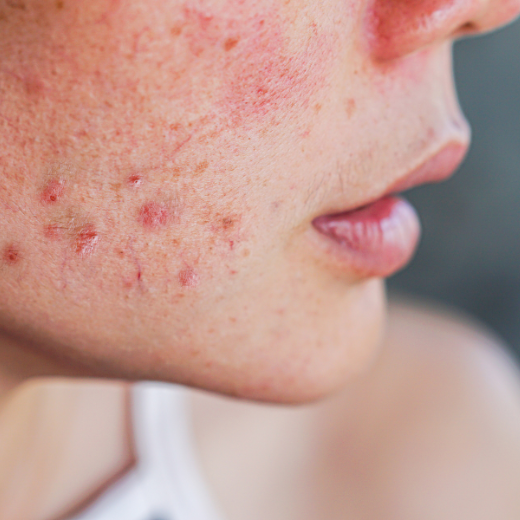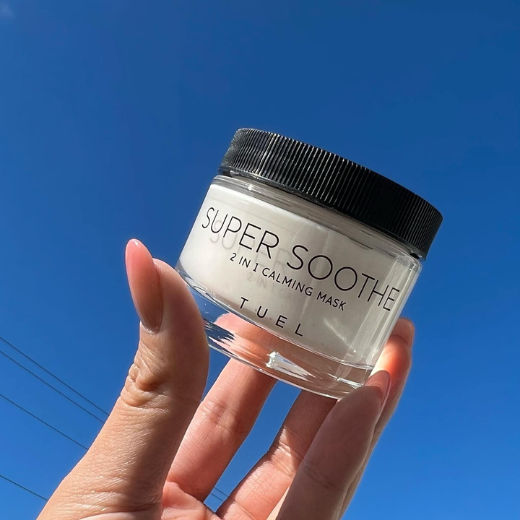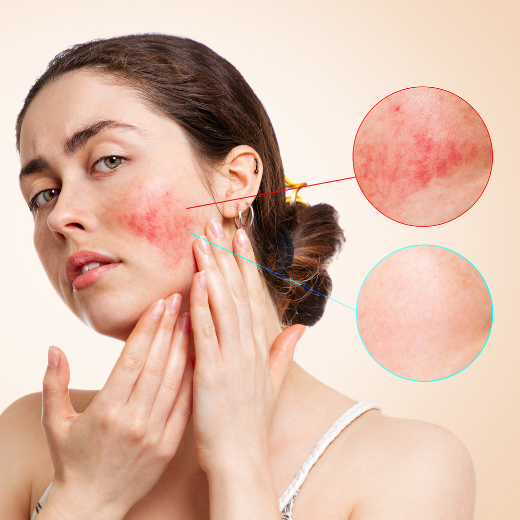Who Started the Fire? Common Causes of Skin Inflammation
Posted by Nikki Wisher on Jun 7th 2024
We’ve all had days when our skin just looks…angry. It’s red, it might even be swollen, and that’s not a look any of us want to wear for the day. That’s skin inflammation, and it’s a common but typically solvable problem. If you want calmer skin, you’ve come to the right place because this is your guide to skin inflammation and why it’s happening.
What Is Skin Inflammation?
In a nutshell, skin inflammation is an immune response. It means that your body believes there’s something on or within your skin that it needs to fight, so it has sent its army (white blood cells) to the area. The result of that immune response is that there’s more blood flow to your skin which makes the skin pink or red and potentially a bit swollen too.
The thing about your immune system, though, is that sometimes it overreacts. Sometimes your skin is inflamed because there’s actually something for your immune system to fight off but other times there isn’t. Either way, none of us love the way our skin looks with inflammation, so we want to reduce the inflammation. This could mean taking away whatever “enemy” your immune system is trying to fight or, if there is no enemy, it could mean addressing the reason your immune system is triggering when it shouldn’t.

Top Causes of Skin Inflammation
Ultimately, you have to know why your inflammation is happening to be able to stop it, so let’s look at the most common reasons for skin inflammation.
Bacteria or Other Infections
This is a case when your immune system is genuinely doing its job and there’s a purpose behind the inflammation. When your skin comes into contact with bacteria, a virus, or a threatening fungus, your body springs into action and you’ll see inflammation appear on your skin.
This might be happening more often than you realize. For example, makeup brushes that aren’t cleaned often enough can take in bacteria which then get onto your skin when you use the brushes. The same thing can happen with makeup itself and skin care products, especially after they expire.
Allergies and Irritants
You might already know that an allergy is when there’s a normally harmless substance, like nuts or wheat, that your body identifies as a threat and attacks with a strong immune reaction. This can happen on your skin too, usually if your skin comes into contact with a topical allergen like nickel or certain fragrances (that’s why fragrance-free skin care products are popular). Your body interprets that contact as a threat and attacks, causing inflammation in your skin.
A similar issue can happen with irritants that aren’t necessarily allergens but that can irritate your skin in a way that triggers an immune response. This often happens with harsh chemicals like certain cleaning chemicals and detergents.
Sun Exposure
When you look in the mirror after a day in the sun and see redness, it might not necessarily be sunburn. Your skin may react to sun damage with inflammation to try to fight off the threat and repair the damage. Certain conditions can also make you more sensitive to inflammation from the sun, like rosacea or lupus.
Dietary Habits
There are certain foods and drinks that can trigger inflammation throughout your body, and that inflammation can show up in your skin too. This can vary from person to person because everyone’s body chemistry is unique, but common culprits include sugar, caffeine, alcohol, tobacco, dairy, and gluten.
Immune Conditions
Some health conditions can cause your immune system to trigger when it shouldn’t or attack cells that are actually healthy. That’s the case with psoriasis, for example, and even celiac disease in some people. While these types of conditions are usually long-lasting, if you suspect that they might be a factor, your doctor can help you manage your symptoms to keep those immune reactions to a minimum.
Easing Your Skin Inflammation
Now that you have some ideas for why you’re seeing skin inflammation, what are the next steps? It can be tricky to track down why your skin is getting inflamed, but it helps to look for patterns. Does your inflammation seem to show up after you eat certain foods or do certain activities? Does the inflammation stop if you take a certain makeup or skin care product out of the rotation? These can all be clues to help you find the culprit and get your inflammation down.
In the meantime, there are solutions to calm your inflammation too. Try a restorative product like GlyMed Plus Recovery Cream with Arnica, for example. A soothing mask can help too, like the Tuel Super Soothe 2 in 1 Calming Mask. Combining a soothing product like this with finding and eliminating the causes of your skin inflammation can help you enjoy more days with that calm, chill skin you love.


